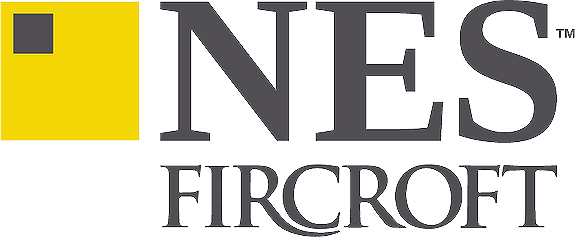
PhD Candidate in mission planning systems for autonomous ships
- Arbeidsgiver
- NTNU - Norges teknisk-naturvitenskapelige universitet
- Stillingstittel
- PhD Candidate in mission planning systems for autonomous ships
- Frist
- 27.11.2024
- Ansettelsesform
- Prosjekt
Beskrivelse
NTNU is a broad-based university with a technical-scientific profile and a focus in professional education. The university is located in three cities with headquarters in Trondheim.
At NTNU, 9,000 employees and 43,000 students work to create knowledge for a better world.
You will find more information about working at NTNU and the application process here.
About the position
For a position as a PhD Candidate, the goal is a completed doctoral education up to an obtained doctoral degree.
The PhD candidate will work on challenging research problems related to automated planning and scheduling (AI planning) for autonomous ship operations. Although autonomous ships will rely heavily on their motion control systems for accomplishing tasks such as path tracking, docking and collision avoidance, for an operation to be fully autonomous the ship must be able to tackle a wide range of additional situations that are outside the scope of low-level guidance and control, such as: When to switch from one stage of the mission to the next (from undocking to transit phase, for instance); What should happen in case of an unexpected situation, such as an unforeseen combination of faults, or sudden lack of vital information at any point during the mission. Such decisions must be made by a high-level agent that is aware of the exact mission objectives, has available the best possible update regarding the current status of the ship and the mission, and has an overview of available resources (including, time, energy, and even the possibility to pass information to a human supervisor onshore).
The mission planning system must generate action sequences (plans) that are feasible, consider all relevant constraints, and can be updated online, since the uncertainty in the marine environment will often render initial planning irrelevant at some point during the mission. From the aforementioned, it becomes obvious that mission planning will be strongly coupled with the ship’s motion control systems and sensors.
This aspect of autonomy has in the past been considered in the context of Space missions. AI planning has been instrumental in those cases, and the successful candidate will be tasked to develop similar methodologies customized to autonomous ship missions. All proposed methodologies will be tested and verified via full-scale experiments.
The position is part of SFI AutoShip, the new 8-year research-based innovation Center in autonomous ships. The Centre focuses on autonomy, digital infrastructure, maritime transport, safety and risk analysis, maritime law, human-machine interaction, and cyber security, with partners from research, public sector and maritime industry. For more information about SFI AutoShip, see www.ntnu.edu/sfi-autoship.
The position reports to Associate Professor Anastasios Lekkas as the main scientific supervisor of the research.
Duties of the position
The main objective of the research is to develop mission planning systems for autonomous ships based on AI planning. The purpose of the mission planning system is to generate action sequences (plans) in a reactive manner, which will then be implemented by the motion control systems of the ship (potentially other modules too, such as communication systems) in order for the ship to accomplish its mission. As part of the research activities, you will collaborate actively with some of the partners in the SFI AutoShip Center. You will be encouraged to have a research stay with one of the collaborating universities outside Norway during the research period.
Selection criteria
The PhD-position's main objective is to qualify for work in research positions.
The qualification requirement is completion of a master’s degree or second degree (equivalent to 120 credits) with a strong academic background in cybernetics, electrical engineering, mathematics, computer science, physics, electronic systems or equivalent education with a grade of B or better in terms of NTNU’s grading scale. Applicants with no letter grades from previous studies must have an equally good academic foundation. Applicants who are unable to meet these criteria may be considered only if they can document that they are particularly suitable candidates for education leading to a PhD degree.
Required qualifications
- Academic background as listed above.
- Excellent English skills (written and oral).
- Programming skills, using Python, C++, Matlab, and/or other languages, and frameworks such as ROS.
- You must meet the requirements for admission to the PhD programme in Engineering Cybernetics.
Preferred selection criteria
- Knowledge and skills in AI planning, and/or guidance and control for robotic systems.
- Experience with autonomous systems.
The employment is to be made in accordance with the regulations in force concerning State Employees and Civil Servants and national guidelines for appointment as PhD, post doctor and research assistant. After the appointment you must assume that there may be changes in the area of work.
In the evaluation of which candidate is best qualified, emphasis will be placed on education, experience, personal suitability, and motivation, as documented according to the requirements for the application.
The appointment is to be made in accordance with Regulations on terms of employment for positions such as postdoctoral fellow, Phd candidate, research assistant and specialist candidate and Regulations concerning the degrees of Philosophiae Doctor (PhD) and Philosophiae Doctor (PhD) in artistic research at the Norwegian University of Science and Technology (NTNU).
Personal characteristics
The candidate is expected to:
- Be scientifically curious and open to new research challenges
- Demonstrate independence and persistence in addressing technical problems
- Be flexible and reliable, with ability to work effectively independently and as part of a team
Emphasis will be placed on personal and interpersonal qualities.
We offer
- exciting and stimulating tasks in a strong international academic environment
- an open and inclusive work environment with dedicated colleagues
- favourable terms in the Norwegian Public Service Pension Fund
- employee benefits
Salary and conditions
As a PhD candidate (code 1017) you are normally paid from gross NOK 532 200 per annum before tax, depending on qualifications and seniority. From the salary, 2% is deducted as a contribution to the Norwegian Public Service Pension Fund.
The period of employment is 3 years (or 4 years with 25% teaching duties for suitable candidates).
Appointment to a PhD position requires that you are admitted to the PhD programme in Engineering Cybernetics within three months of employment, and that you participate in an organized PhD programme during the employment period.
The engagement is to be made in accordance with the regulations in force concerning State Employees and Civil Servants, and the acts relating to Control of the Export of Strategic Goods, Services and Technology. Candidates who by assessment of the application and attachment are seen to conflict with the criteria in the latter law will be prohibited from recruitment to NTNU. After the appointment you must assume that there may be changes in the area of work.
The position is subject to external funding.
It is a prerequisite you can be present at and accessible to the institution on a daily basis.
About the application
The application and supporting documentation to be used as the basis for the assessment must be in English or Norwegian.
Publications and other scientific work must follow the application. Please note that your application will be considered based solely on information submitted by the application deadline. You must therefore ensure that your application clearly demonstrates how your skills and experience fulfil the criteria specified above.
The application must include:
- CV and certificates
- Transcripts and diplomas for bachelor's and master's degrees. If you have not completed the master's degree, you must submit a confirmation that the master's thesis has been submitted.
- A copy of the master's thesis. If you recently have submitted your master's thesis, you can attach a draft of the thesis. Documentation of a completed master's degree must be presented before taking up the position.
- A short and directed cover letter (in English or Norwegian) identifying:
o Your motivation for a PhD study
o Your understanding and thoughts of topics of the position
o Why you are suited for the position. - Name and contact information of minimum 2 referees.
- If you have publications or other relevant research work
If all, or parts, of your education has been taken abroad, we also ask you to attach documentation of the scope and quality of your entire education, both bachelor's and master's education, in addition to other higher education. Description of the documentation required can be found here. If you already have a statement from Norwegian Directorate for Higher Education and Skills, please attach this as well.
We will take joint work into account. If it is difficult to identify your efforts in the joint work, you must enclose a short description of your participation.
In the evaluation of which candidate is best qualified, emphasis will be placed on education, experience and personal and interpersonal qualities. Motivation, ambitions, and potential will also count in the assessment of the candidates.
NTNU is committed to following evaluation criteria for research quality according to The San Francisco Declaration on Research Assessment - DORA.
General information
Working at NTNU
NTNU believes that inclusion and diversity is our strength. We want to recruit people with different competencies, educational backgrounds, life experiences and perspectives to contribute to solving our social responsibilities within education and research. We will facilitate for our employees’ needs.
NTNU is working actively to increase the number of women employed in scientific positions and has a number of resources to promote equality.
The city of Trondheim is a modern European city with a rich cultural scene. Trondheim is the innovation capital of Norway with a population of 200,000. The Norwegian welfare state, including healthcare, schools, kindergartens and overall equality, is probably the best of its kind in the world. Professional subsidized day-care for children is easily available. Furthermore, Trondheim offers great opportunities for education (including international schools) and possibilities to enjoy nature, culture and family life and has low crime rates and clean air quality.
As an employee at NTNU, you must at all times adhere to the changes that the development in the subject entails and the organizational changes that are adopted.
A public list of applicants with name, age, job title and municipality of residence is prepared after the application deadline. If you want to reserve yourself from entry on the public applicant list, this must be justified. Assessment will be made in accordance with current legislation. You will be notified if the reservation is not accepted.
If you have any questions about the position, please contact Associate Professor Anastasios Lekkas, e-mail: anastasios.lekkas@ntnu.no . If you have any questions about the recruitment process, please contact HR Consultant Berit Dahl, e-mail: berit.dahl@ntnu.no .
If you think this looks interesting and in line with your qualifications, please submit your application electronically via jobbnorge.no with your CV, diplomas and certificates attached. Applications submitted elsewhere will not be considered. Upon request, you must be able to obtain certified copies of your documentation.
Application deadline: 27.11.2024.
- Sektor
- Offentlig
- Sted
- NTNU, 7491 Trondheim
- Stillingsfunksjon
- Ingeniør, Forskning/Stipendiat/Postdoktor, Undervisning og pedagogikk
- FINN-kode
- 380209573
- Sist endret
- 13. nov. 2024 07:11
Mer som dette





